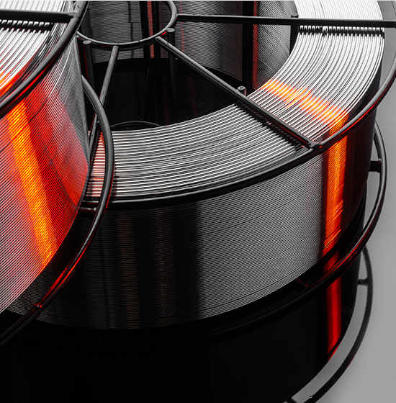TITANIUM

TITANIUM WELDING MATERIALS
To weld elements made of titanium Grade 1-4, materials with properly matched chemical composition are required. For welding titanium alloys we supply welding wire made in accordance with DIN standards, The wire could be used to weld heat exhangers, containers and pipeline systems for chemical industries as well as applications in aircraft building and airline industry.
Titanium welding materials, precautions
It is important to point out, that the higher amount of impurities reaching 0,2 – 1,2% (such as oxygen, nitrogen, hydrogen, carbon, iron, silicon) the stronger the alloy gets, hence weldability and plastic properties decrease. Titanium with good welding properties should have Brinell hardness value at 200 HB. Increasing hardness of the alloy by 50 HB may cause welded joint to become more brittle.





If the weld absorbes more (over 150ppm) hydrogen, it may lead to hydrogen embrittlement of the element.
Difficulties related with welding titanium alloys:
- high temperatures increases titanium’s chemical activity and reactivity with carbon;
- low thermal and electric conductivity;
- titanium’s allotropic transformation: alpha < 882˚C and beta > 882˚C;
While welding an inert gas shield should be used – Ar, He, Ar-He of a high purity reaching up to 99,9%
Titanium advantages:
- excellent strength at high temperature of 500 ˚C;
- full immunity against brine and chlorides;
- high chemical corrosion resistance, exceeding the one of austenitic stainless steel;
- high resistance to molten metals and alloys including zinc, bismuth, magnesium;
- high resistance to aqua regia, nitric acid, organic acids, dilute solutions of sulfuric and hydrochloric acids;
Our titanium welding materials conform to the DIN standards.
We provide product and material consulting. Let us know if you need any help!
Do you have questions? We have the answers!
